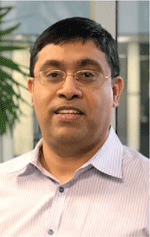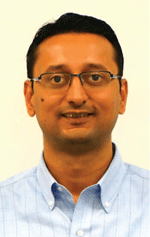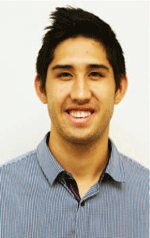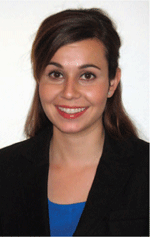Digital innovation in subsea integrity management
Ricky Thethi A , Dharmik Vadel B , Mark Haning C and Elizabeth Tellier C DA Clarus Subsea Integrity, Hollywood House, Church Street East, Woking, Surrey, GU21 6HJ, UK.
B Clarus Subsea Integrity, 15990 North Barkers Landing, Suite 200, Houston, TX 77079, USA.
C 2H Offshore Engineering, 1008 Hay Street, Level 8, Perth, WA 6000, Australia.
D Corresponding author. Email: Elizabeth.Tellier@2hoffshore.com
The APPEA Journal 60(1) 215-226 https://doi.org/10.1071/AJ19123
Submitted: 19 December 2019 Accepted: 3 February 2020 Published: 15 May 2020
Abstract
Since the 2014 oil-price downturn, the offshore oil and gas industry has accelerated implementation of digital technologies to drive cost efficiencies for exploration and production operations. The upstream offshore sector comprises many interfacing disciplines such as subsurface, drilling and completions, facilities and production operations. Digital initiatives in subsurface imaging, drilling of subsea wells and topsides integrity have been well publicised within the industry. Integrity of the subsea infrastructure is one area that is currently playing catch up in the digital space and lends itself well for data computational efficiencies that artificial-intelligence technologies provide, to reduce cost and lower the risk of subsea equipment downtime. This paper details digital technologies employed in the area of subsea integrity management to meet the objectives of centralising access to critical integrity data, automating workflows to collect and assess data, and using machine learning to perform more accurate and faster engineering analysis with large volumes of field-measured data. A comparison of a typical subsea field is presented using non-digital and digital approaches to subsea integrity management (IM). The comparison demonstrates where technologies such as digital twins for dynamic structures, and auto anomaly detection by using image recognition algorithms can be deployed to provide a step change in the quality of subsea integrity data coming from field. It is demonstrated how the use of a smart IM approach, combined with strong domain knowledge in subsea engineering, can lead to cost efficiencies in operating subsea assets.
Keywords: big data, data centralisation, digital technologies, digital twin, flexible riser digital twin, flexible risers, fitness for service, inspections, integrity management plan, life extension, machine learning, KPIs, reduce opex, subsea anomalies.

Ricky Thethi is President of Clarus Subsea Integrity and a Global Director 2H Offshore. Both companies are part of the Acteon Group. He is responsible for globalising and delivering the Group’s integrity engineering services. One of his current focus areas is in the digital transformation of subsea engineering and operational surveillance. This includes the use of machine learning technology to improve the speed and accuracy of structural dynamic analysis, integrity monitoring, visual anomaly detection and life extension of offshore systems. Ricky has over 22 years in the design, delivery and integrity management of offshore dynamic riser and subsea systems. Ricky obtained his degree in Civil Engineering from the University of Surrey, UK, and is a Fellow and Chartered Marine Engineer of the IMarEST. |

Dharmik Vadel is the Vice President of Clarus Subsea Integrity Inc., an Acteon Company. Since Clarus’ inception, he has managed the Houston office operations and is responsible for company’s strategic growth initiatives, including digital innovations for integrity management. With over 14 years of experience, Dharmik has managed multi-asset integrity management projects covering SURF, pipelines and mooring systems, with specific experience in risk based IM program development, life extension solutions, and delivering digital data management solutions. Dharmik holds an M.S. in Environmental Engineering from Oklahoma State University, USA, and a Bachelor’s degree in Civil Engineering from National Institute of Technology, Calicut, India. |

Mark Haning graduated from University of Western Australia with a BEng in Civil Engineering and Curtin University with a MSubsea Eng in Subsea Engineering. Mark is a Senior Engineer with 2H Offshore with experiences in the design and integrity management of subsea infrastructure, with speciality in rigid risers. He has worked on projects primarily in the North West Shelf and Gulf of Mexico and is currently situated in Paris, managing the design, fabrication and installation of a top tension riser project in the North Sea. |

Elizabeth Tellier is Director of 2H Offshore Engineering in Perth. She has 17 years of experience in the oil and gas industry with various types of riser design, subsea structural monitoring systems and riser integrity management. In 2010, Elizabeth was relocated to Perth from 2H Houston to start a local office with the goal of supporting the growing subsea market in WA. She has taken an active role in the subsea community by participating as an SUT committee member for the Perth branch SUT for 4 years and as an active ongoing member. Elizabeth holds a B.S. in Mechanical Engineering and a Minor in Business Administration from Texas A&M University. |
References
Bflex (2017). ‘Bflex Software 2010 Version 3.1.0.’ (Marintek.)Grady, M. (2019). Digitalization provides opportunities and challenges. Offshore Magazine 79, 42–45. Available at https://www.offshore-mag.com/production/article/16763950/digitalization-provides-opportunities-and-challenges [verified 11 February 2020].
Kletz, T. A. (1993). Organisations have no memory. In ‘Lessons from Disaster: How Organizations have No Memory and Accidents Recur’. pp. 4–23. (IChemE: Rugby, UK.)
Orcina (2016). ‘Orca Flex, Version 10.1a.’ Available at https://www.orcina.com/releases/ [verified 11 February 2020].
Sundararaman, S., Thethi, R., and Hill, M. (2018). Data driven virtual sensors for riser prognostic integrity management. In ‘Offshore Technology Conference’, 30 April – 3 May, Houston, Texas, USA.’
Vadel, D. (2018). ‘Clarus Subsea Integrity’s iCUE Digital Anomaly Detection App.’ Offshore Source, May 2018. Available at http://www.clarusintegrity.com/news/entry/clarus-subsea-integrity-introduces-icue-digital-anomaly-detection-app [verified 5 March 2020].


